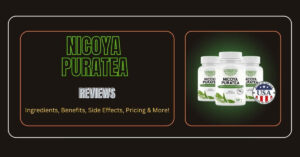Seasonal allergies, often referred to as hay fever or allergic rhinitis, affect millions every year, causing discomfort during certain times of the year. These allergies are triggered by environmental allergens like pollen, dust, and mould spores. For some, this means itchy eyes, a runny nose, or even constant sneezing during spring and autumn months. Although medication is commonly used to relieve these symptoms, many individuals are looking to natural remedies for a gentler, holistic approach.
Natural remedies for seasonal allergies are growing in popularity as they offer ways to manage symptoms without relying on pharmaceuticals. These natural options are often gentler on the body, can complement traditional allergy treatments, and may even provide lasting relief. With more understanding of the benefits and mechanisms behind these remedies, many people are turning to natural solutions as their go-to approach to managing allergy seasons.
From herbal treatments to dietary adjustments and lifestyle changes, these methods provide a comprehensive approach to controlling allergy symptoms. We’ll look at which remedies are most effective, why they work, and how you can incorporate them into your daily routine to make seasonal allergies a thing of the past.
Why Do We Get Seasonal Allergies?
Understanding the Immune Response
When seasonal allergens enter the body, the immune system mistakenly identifies them as threats. In response, it releases chemicals, including histamines, to protect the body. This process leads to common allergy symptoms, such as itching, sneezing, and watery eyes. Histamines play a vital role in the body’s defense mechanism but can also result in inflammation, congestion, and discomfort.

Anxiety Hacks Practical Tips to Calm Your Mind and Body
The primary culprits are pollen from trees, grass, and weeds. When these tiny particles come into contact with nasal passages, they trigger the immune system, leading to an allergic reaction. Understanding this response is essential for exploring why certain natural remedies are effective in managing symptoms.
How Common Environmental Factors Contribute
Other environmental factors can contribute to seasonal allergies. Dust, mould, and even pet dander are common indoor allergens that exacerbate symptoms, especially for those sensitive to changes in air quality. Weather patterns, humidity levels, and even geographical location can influence the severity and duration of allergy season.
Natural Remedies for Seasonal Allergies
1. Local Honey
Why It Works
Local honey has been used for centuries as a natural remedy for seasonal allergies. The theory is that by consuming honey made from local pollen, you may build a natural immunity to the allergens in your area. Honey contains trace amounts of pollen, and ingesting it in small doses can act as a natural vaccine, gradually reducing your body’s sensitivity to pollen.
How to Use It
For best results, take a teaspoon of raw local honey daily, starting a few months before allergy season. Adding honey to herbal teas or smoothies can be an easy way to integrate it into your diet.
2. Quercetin-Rich Foods
Why It Works
Quercetin, a powerful flavonoid found in various fruits and vegetables, acts as a natural antihistamine. This compound stabilises histamine-releasing cells, potentially reducing the severity of allergic reactions. It also possesses anti-inflammatory properties, making it ideal for easing symptoms like congestion and swelling.
How to Use It
Foods high in quercetin include apples, onions, berries, and kale. Integrating these into your meals can provide a daily dose of this natural antihistamine. For a more concentrated dose, quercetin supplements are available and can be taken during peak allergy seasons.
3. Nettle Leaf
Why It Works
Nettle leaf is another natural remedy renowned for its antihistamine properties. It blocks the body’s histamine receptors, preventing the release of histamines that cause itching and sneezing. Nettle leaf is available in various forms, such as teas, capsules, and tinctures, and is generally considered safe and effective for managing allergy symptoms.
How to Use It
Drinking nettle tea is a simple way to benefit from its antihistamine effects. Alternatively, nettle supplements can provide a stronger dose if symptoms are particularly severe. Starting this regimen before allergy season can offer preventative benefits.
4. Probiotics for Gut Health
Why It Works
A strong immune system begins with a healthy gut. Probiotics promote a balanced gut microbiome, which can help regulate the immune response to allergens. Research suggests that specific probiotic strains may reduce inflammation and allergic reactions, making them valuable for managing seasonal allergies.
How to Use It
Adding probiotic-rich foods like yogurt, kefir, and sauerkraut to your diet can improve gut health. Probiotic supplements, particularly those containing Lactobacillus and Bifidobacterium strains, can further support your immune system, making it less reactive to allergens.
Natural Ways to Overcome Depression: Tips for a Brighter Tomorrow
5. Essential Oils for Allergy Relief
Why It Works
Certain essential oils, such as peppermint, eucalyptus, and lavender, offer decongestant, anti-inflammatory, and antihistamine effects. These oils can help relieve nasal congestion, reduce inflammation, and ease other allergy symptoms. Their therapeutic properties make them a natural choice for managing seasonal allergies without side effects.
How to Use It
Inhalation or topical application are the most effective ways to use essential oils for allergies. Diffusing oils in your living space, adding a few drops to a bowl of steaming water, or using them in a nasal inhaler can open up nasal passages and reduce congestion. Always dilute essential oils with a carrier oil if applying directly to the skin.
6. Dietary Adjustments to Reduce Inflammation
Why It Works
Certain foods can trigger inflammation and worsen allergy symptoms. Foods high in omega-3 fatty acids, antioxidants, and vitamins can help reduce inflammation and strengthen the immune system. Avoiding foods that are known to cause inflammation, like dairy, processed sugars, and fried foods, can also lessen the body’s inflammatory response to allergens.
How to Use It
Incorporate anti-inflammatory foods such as salmon, leafy greens, and nuts into your diet. Reducing or eliminating dairy and processed foods during allergy season may provide relief. Consider focusing on fresh, whole foods to support overall health and immunity.
Lifestyle Adjustments for Allergy Relief

1. HEPA Air Filters
HEPA (High-Efficiency Particulate Air) filters can capture allergens like pollen, dust, and pet dander, improving indoor air quality. Placing HEPA filters in common areas, especially in bedrooms, can significantly reduce allergens in the air.
2. Saline Nasal Irrigation
Using a saline nasal rinse can help remove pollen and other allergens from nasal passages, reducing congestion and irritation. A neti pot or saline spray can be used daily during allergy season to keep nasal passages clear.
3. Keep Windows Closed During High Pollen Times
Limiting exposure to outdoor allergens can significantly reduce symptoms. Close windows during high pollen periods, especially in the early morning and evening, to prevent allergens from entering your home.
Frequently Asked Questions (FAQs)
Can natural remedies replace allergy medication?
Natural Remedies for Seasonal Allergies can be a helpful alternative or complement to medication, but they may not be a complete replacement for everyone. Consult a healthcare provider to determine what’s best for you.
How long should I take natural remedies before seeing results?
Some natural remedies, like honey and probiotics, may take a few weeks to show effects, while others, like essential oils, may offer quicker relief. Start early to see the best results.
Are there side effects to using herbal remedies for allergies?
While many herbal remedies are safe, some may cause reactions in sensitive individuals. Always research or consult a healthcare provider before starting a new herbal remedy.
Can a change in diet really impact allergies?
Yes, diet plays a significant role in inflammation and immune response. Anti-inflammatory foods can help alleviate symptoms, while some foods can worsen allergies.
What are the best natural antihistamines?
Quercetin, nettle leaf, and vitamin C are considered among the best natural antihistamines, as they help stabilise histamine levels in the body.
How can I prevent seasonal allergies naturally?
Starting natural remedies like local honey, probiotics, and dietary changes before allergy season can help prevent symptoms. Regularly using saline rinses and air purifiers can also reduce exposure to allergens.
Conclusion
Natural remedies for seasonal allergies provide a gentle, effective way to manage and alleviate symptoms without heavy reliance on medications. From local honey and quercetin-rich foods to essential oils and dietary adjustments, these methods empower individuals to take control of their health naturally.







